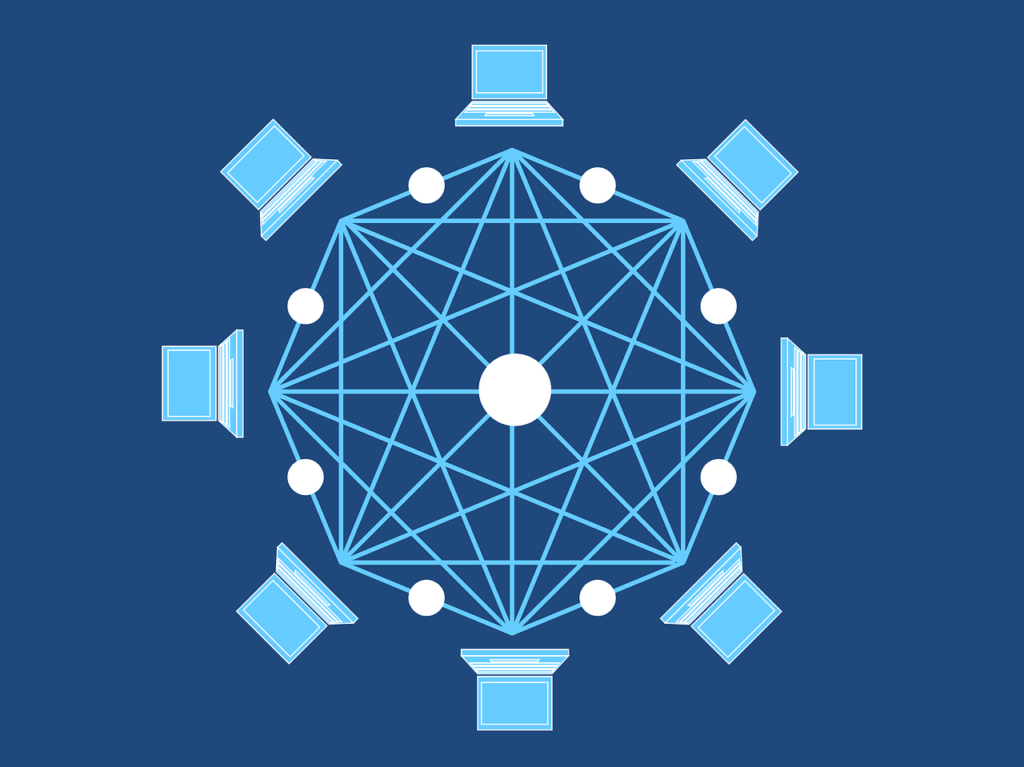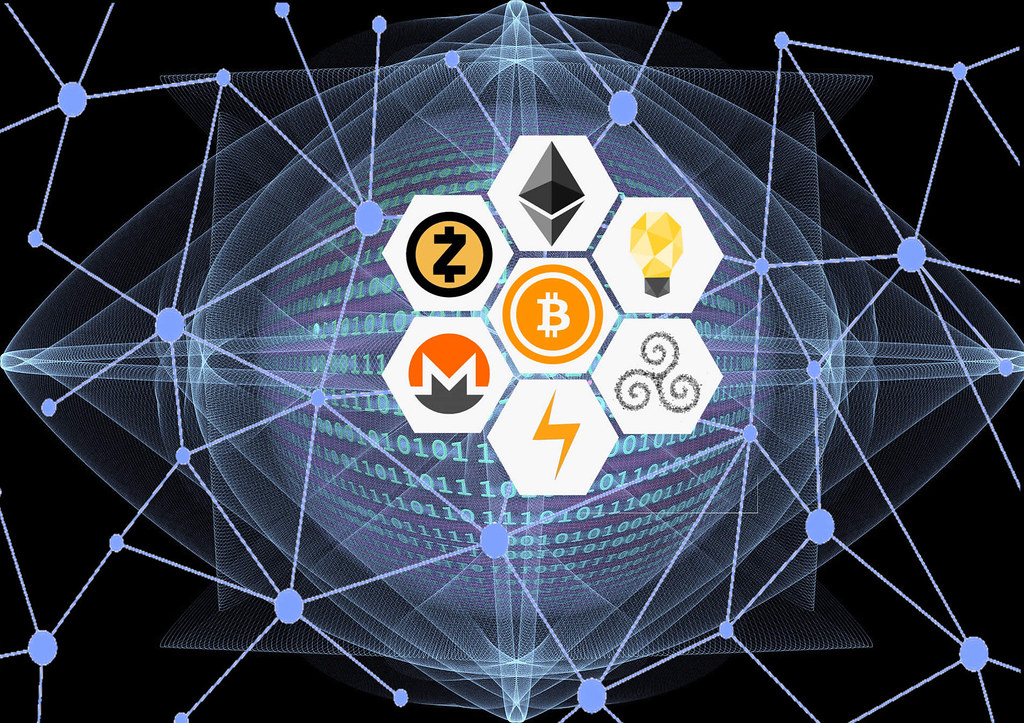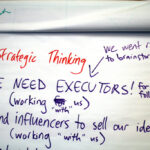Blockchain technology, which was formerly only associated with cryptocurrency, is now a force that is revolutionizing several industries. In 2023, the landscape will be dynamic, with continuous advancements and innovative applications reshaping our digital future.

Table of Contents
Introduction
In the rapidly changing technological landscape, blockchain stands out as a beacon of innovation. From its humble beginnings as the underlying technology for cryptocurrencies like Bitcoin, blockchain has grown into a versatile solution with the potential to revolutionize how we transact, communicate, and secure data.
What is blockchain?
Imagine blockchain as an incorruptible shield that protects the integrity of data, acting as a digital fortress. Imagine it as a decentralized truth keeper, where information is scattered throughout a network of watchful nodes rather than being kept in a single, exposed vault.
Fundamentally, blockchain is a revolutionary ledger—but not the same kind of ledger your grandmother used to manage her finances. It is an open, transparent, decentralized record-keeper that makes sure that information is permanently ingrained in its digital foundation.
Consider it to be a global notary that validates and verifies transactions without requiring a middleman. Blockchain stands sentinel, providing a trust-infused handshake to the digital age, whether you’re trading cryptocurrencies, authenticating goods, or finalizing business deals.
Blockchain technology in 2023: Current Landscape
The landscape of blockchain in 2023 is a dynamic tapestry of innovation and maturation in the always changing field of technology. Blockchain is more than just a catchphrase as we traverse the digital frontier; it is a fundamental force redefining trust and reshaping industries.
Although cryptocurrencies, the blockchain’s pioneers, still make news, there is more to this story than just Bitcoin. Ethereum is a playground for decentralized applications (DApps), enabling a new era of digital interactions with its smart contract capabilities.
Businesses are incorporating blockchain technology into their structures as they become more aware of its capabilities. Businesses are taking advantage of the security and transparency that blockchain provides in areas like supply chain management and identity verification.
With the NFT (Non-Fungible Token) craze, digital assets have become verifiable treasures, opening up new revenue streams and ownership opportunities for creators, musicians, and artists.
Blockchain isn’t limited; instead, it’s connected thanks to layer 2 solutions and cross-chain partnerships that address interoperability and scalability, two issues that were previously obstacles.
Regulations are changing to reflect the need to encourage innovation rather than stifle it. Governments are looking into responsible blockchain integration strategies that strike a balance between advancement and security.
In 2023, as we navigate the blockchain landscape, we will do so with cooperation, improvement, and recognition of the revolutionary potential this technology possesses. It is the blueprint for a decentralized future, not just a ledger.
Applications Across Industries
Blockchain is no longer confined to the realm of finance. Industries like healthcare and supply chain management are leveraging its decentralized nature to enhance transparency, traceability, and security.
Smart Contracts: A Game-Changer
An essential component of blockchain technology are smart contracts, which are self-executing agreements with the conditions of the contract encoded directly into the code. They automate processes, reduce the need for intermediaries, and offer unparalleled efficiency.
Decoding Blockchain Technology
For the uninitiated, blockchain can be a complex puzzle. Breaking down concepts like consensus algorithms and cryptographic techniques is crucial to fostering widespread understanding and adoption.
Challenges and Solutions
Scalability and security concerns have haunted the blockchain since its inception. However, ongoing research and development efforts are addressing these challenges, ensuring a more robust and reliable system.
Blockchain in Daily Life
From voting systems to food traceability, blockchain applications touch our lives more than we realize. Simplifying these applications for the average person is key to fostering broader acceptance.
Future Trends in Blockchain
The future of blockchain holds exciting possibilities. From the integration of artificial intelligence to the rise of decentralized finance (DeFi), the trajectory is promising.
Blockchain and Cryptocurrencies
While blockchain and cryptocurrencies are often intertwined, understanding their relationship is crucial. The impact of blockchain on the financial landscape, especially through cryptocurrencies, is undeniable.
Regulatory Landscape
As blockchain gains prominence, governments are grappling with the need for regulations. An essential component of blockchain technology are smart contracts, which are self-executing agreements with the conditions of the contract encoded directly into the code.
Blockchain and Environmental Impact
Critics have pointed out the energy-intensive nature of blockchain networks. However, ongoing efforts are focused on developing sustainable solutions that minimize environmental impact.
The Role of Blockchain in Cybersecurity
In an era of escalating cyber threats, blockchain technology provides a robust defense against data breaches. Its decentralized and tamper-resistant nature enhances digital security.
Educational Initiatives on Blockchain
Promoting awareness and education is crucial for the widespread adoption of blockchain. Initiatives aimed at providing accessible resources and training programs play a pivotal role in bridging the knowledge gap.
Conclusion
Blockchain technology is not just a buzzword; it’s a transformative force that is reshaping the way we interact with the digital world. As we decode the future of blockchain in 2023, the potential for positive change is immense.
Frequently Asked Questions
- Is blockchain only about cryptocurrencies?
- While blockchain started with cryptocurrencies, its applications have expanded to various industries, including finance, healthcare, and supply chain management.
- How does blockchain ensure security?
- Blockchain ensures security through its decentralized and tamper-resistant nature, making it highly resistant to hacking and fraud.
- What are smart contracts, and how do they work?
- Smart contracts are self-executing contracts with terms written in code. They automatically execute when predefined conditions are met, eliminating the need for intermediaries.
- What challenges does blockchain face?
- Scalability and security are primary challenges. Efforts are ongoing to address these concerns and enhance the overall reliability of blockchain technology.
- How can individuals learn more about blockchain?
- Various educational initiatives and online resources offer accessible information and training programs for those interested in learning about blockchain.










yandanxvurulmus.wEgnH7zImHbC